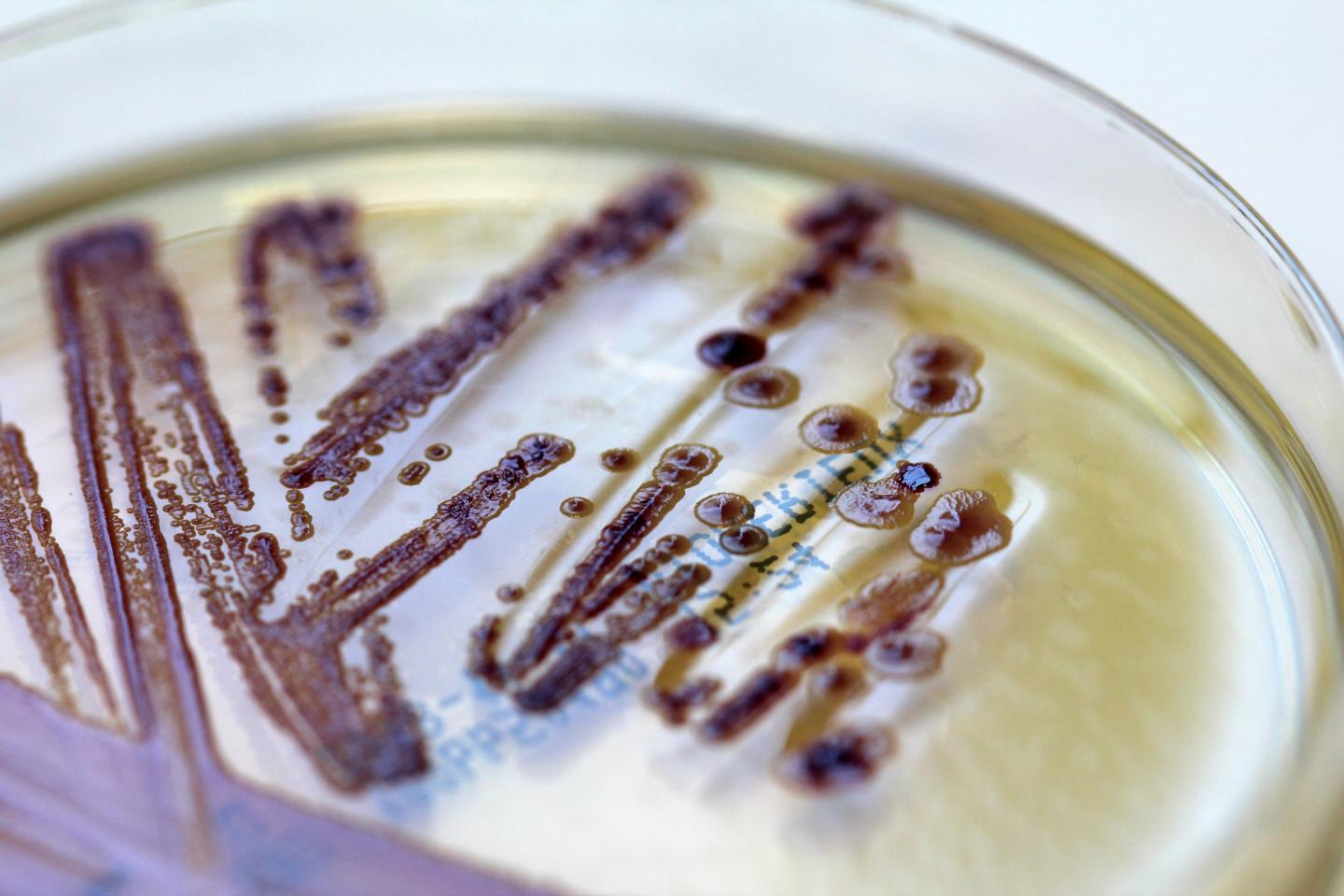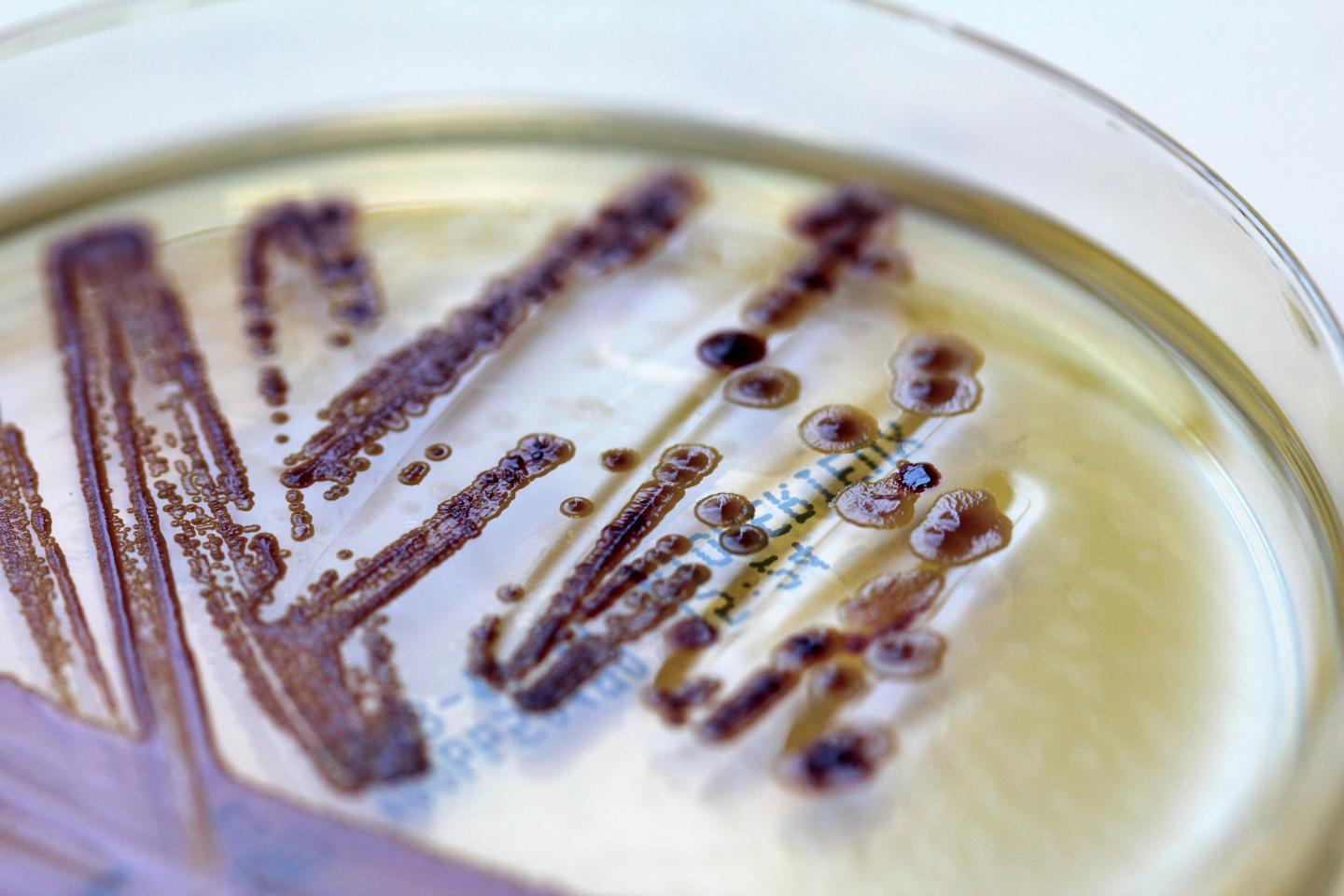
Credit: University of Cologne
A team of researchers at the University of Cologne's Faculty of Medicine and the German Center for Infection Research (DZIF) has achieved a scientific breakthrough in the accelerated diagnosis of multi-resistant hospital pathogens. Using a novel immunochromatographic method, the researchers detected bacteria that are resistant to the antibiotic group carbapenemes within 20 to 45 minutes from blood cultures with 100 percent certainty. Current test procedures still take up to 72 hours. The results have been published in PLOS ONE.
Patients with bloodstream infections caused by gram-negative pathogens such as Escherichia coli (E. coli) have a high mortality rate. However, the infection has so far usually been treatable with antibiotics. But due to the increased antibiotic resistance of bacteria, also against the group of carbapenems, therapy has become increasingly difficult. Infections with multi-resistant pathogens that are also resistant to such 'reserve antibiotics' often lead to ineffective antibiotic therapy and thus to higher mortality.
In order to detect pathogens such as E. coli in the bloodstream, methods are currently being used that take 16 to 72 hours to detect antibiotic resistance. Accelerated diagnostics is therefore an essential step in treating patients with infections caused by carbapenem-resistant bacteria faster and more specifically, and in curbing the spread of the pathogens. The resistance of gram-negative bacteria is usually caused by enzymes that can destroy antibiotics, including carbapenem antibiotics. They are known as carbapenemases. The most common carbapenemases worldwide are Klebsiella pneumoniae carbapenemase (KPC), New Delhi metallo-betalactamase (NDM) and OXA-48.
The present study examined blood samples mixed with carbapenemase-producing bacteria. Three of the four most common carbapenemases – OXA-48, KPC and NDM – were discovered directly from positive blood cultures using a single test procedure without the need for time-consuming further cultivation on agar plates. The new method is fast, easy to use, inexpensive (approximately 10 euros per test) and can be performed in any clinical microbiology laboratory.
'With this procedure, we have come a giant step closer to our goal of being able to help patients infected with multi-resistant pathogens as quickly as possible', said the lead author of the study ,Professor Dr. med. Axel Hamprecht from the German Center for Infection Research and the Institute for Medical Microbiology, Immunology and Hygiene at Cologne University Hospital. 'In the case of the aggressive pathogens we are confronted with, every minute counts in order to start a targeted therapy. We now have to conduct follow-up studies in order to transfer our findings into clinical practice as quickly as possible.'
The proof-of-principle study, which is funded by the University of Cologne's Faculty of Medicine, proves the safety and efficacy of the new method. However, before the new method can replace conventional diagnostics and be introduced into clinical practice, further studies will be necessary.
###
At the German Center for Infection Research, approximately 500 scientists and physicians from 35 institutions work together to develop new approaches for the prevention, diagnosis and treatment of infectious diseases. The goal is translation: the rapid and effective transfer of research results into clinical practice. That way, the German Center for Infection Research paves the way for the development of new vaccines, diagnostics and drugs against infections.
The Faculty of Medicine at the University of Cologne trains more than 3,500 students in a practice-oriented environment, closely interlinking teaching, patient care and research. The Faculty's main research areas are 'Tumor biology, infection and immunity', 'Homeostatic principles in metabolism and tissue regeneration' and 'Neuromodulation'.
Publication:
Hamprecht A, Vehreschild JJ, Seifert H, Saleh A (2018) Rapid detection of NDM, KPC and OXA-48 carbapenemases directly from positive blood cultures using a new multiplex immunochromatographic assay. PLOS ONE 13(9): e0204157. https://doi.org/10.1371/journal.pone.0204157
Media Contact
Axel Hamprecht
[email protected]
49-221-478-32162
@UniCologne
http://www.uni-koeln.de
Original Source
https://doi.org/10.1371/journal.pone.0204157 http://dx.doi.org/10.1371/journal.pone.0204157





